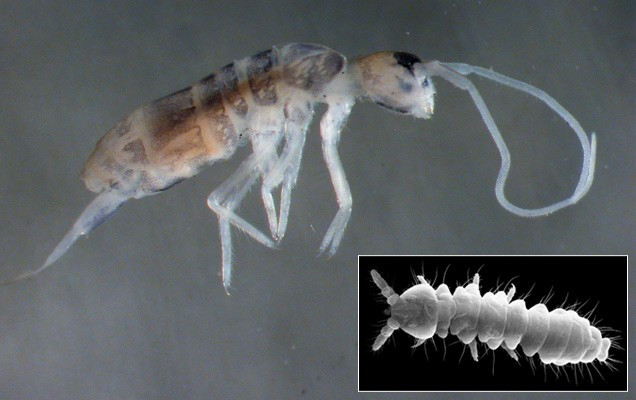New Species of Springtails Discovered 2000M Underground

Researchers say they have discovered four new species of springtails near the Black Sea.
The scientists, from the University of Navarre in Spain and the University of Aveiro in Portugal, found the new species in the Krubera-Voronja - the world's deepest cave - which is located at Abkhazia, a remote area near the Black Sea in the mountains of Western Caucasus. The team said they had been exploring the area for 10 years.
The new species discovered are called Anurida stereoodorata, Deuteraphorura kruberaensis, Schaefferia profundísima and Plutomurus ortobalaganensi. Each of these discovered species are between one and four millimeters in length. These springtails belong to the family Collembola, have an external skeleton and articulated appendages like limbs and antennae. They also have a special organ for jumping, named - the furcula.
Among the four species, Plutomurus ortobalaganensi does not have eyes; it has only antenna to aid in navigation. In addition, it is now believed to be the deepest-living terrestrial animal, having been found 1,980 meters below ground level. Prior to this, the deepest living animals were believed to scorpions and silverfish.
"P. ortobalaganensis has no eyes and long antennae," said researcher Enrique Baquero, a taxonomist at the University of Navarre in Spain, "Nevertheless, it has pigment, usually absent in animals that are strict troblobionts."
"There are no machines, only human work," said Sofia Reboleira, the study's co-author and a cave biologist from the University of Aveiro, "At the base camp we have no freshwater, only melted snow, and the food has to be rationed to feed almost 30 persons during 30 days."
"Searching for cave-dwelling animals is a task that requires several hours of active search - extremely difficult in the cold conditions of the cave, because of the risk of hypothermia," she said.
The article was published in Terrestrial Arthropod Reviews.
© Copyright IBTimes 2025. All rights reserved.





















